Cannibalising U.S. firms in China
The U.S. strategy to impose steep tariffs on Chinese goods shipped to the U.S. has been puzzling since the tariffs are likely to hurt a large number of American enterprises based in China
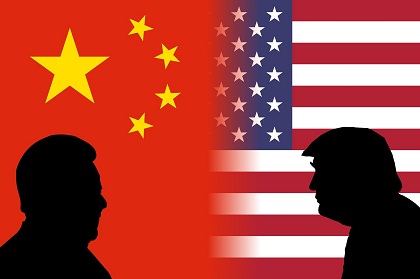 Courtesy: Enterprenuer.com
Courtesy: Enterprenuer.com
The U.S. strategy to impose steep tariffs on Chinese goods shipped to the U.S. has been puzzling since the tariffs are likely to hurt a large number of American enterprises based in China
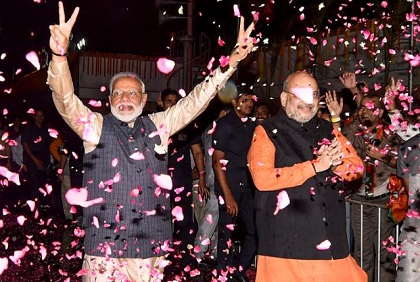 Courtesy: India Today
Courtesy: India Today
The Bharatiya Janata Party, led by Prime Minister Narendra Modi, has been returned to power for another five years, till 2024. In the run-up to the national elections, the author travelled to Bengal and Uttar Pradesh, two of India’s most important states, to gauge the mood of the electorate, and to assess the economic and political conditions on the ground since the last election in 2014. She found a new generation with big dreams, and a population whose basic needs were being met. Economic citizenry has trumped identity politics. Modi is the leitmotif for this India, and they look to him to lead them into a middle class future.
 Courtesy: John Murray
Courtesy: John Murray
Demography has an important role in economic and political history, it has an impact on political thinking and changing populations influence the balance of power between different countries. The book is especially good at British, British colonial and European demographic history, but its weakness is its Euro-centrism
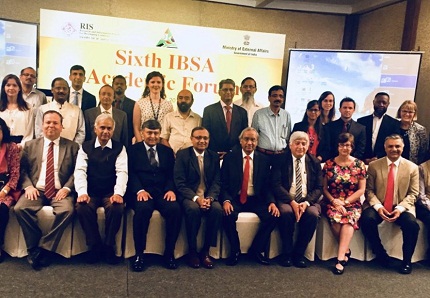 Courtesy: RIS
Courtesy: RIS
The following are remarks given by Ambassador Rajiv Bhatia, Distinguished Fellow, Foreign Policy Studies, Gateway House at a panel discussion on ‘Contemporary Global Governance and the Role of IBSA’, at the IBSA Academic Forum hosted by RIS and the Ministry of External Affairs, Government of India.
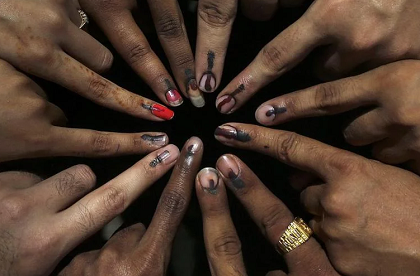 Courtesy: News Click
Courtesy: News Click
The Indian elections 2019, being conducted over seven phases, reaffirm all the values electoral democracy stands for, but this time, it has also become a referendum on Prime Minister Modi and his Bharatiya Janata Party which had won a clear majority in 2014. Outcomes are therefore unpredictable
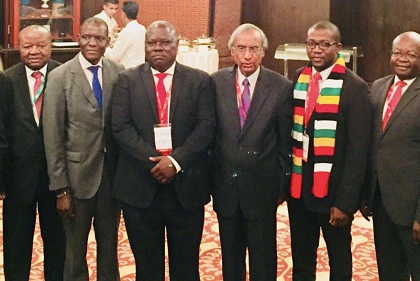 Courtesy: Gateway House
Courtesy: Gateway House
The recently concluded CII-Exim Bank Conclave on the India-Africa Project Partnership elicited in-depth discussions on how to increase economic cooperation between the two countries. Three themes emerged, the infrastructure deficit continuing to be one of Africa’s greatest preoccupations
 Courtesy: Free Press Journal
Courtesy: Free Press Journal
Japanese Emperor Naruhito’s coronation on May 1, marking the dawn of the Reiwa Era, is a milestone also for the Indian merchant diaspora, which began arriving during the reign of the Meiji Emperor in the 1870s. The strength of the India-Japan bilateral relationship lies in the 150-year-old narratives of these family-run firms and the success of many Indo-Japanese collaborations
 Courtesy: exit.al
Courtesy: exit.al
Digital black markets or “dark net marketplaces” which facilitate the transaction of contraband and illegal services, pose a silent, relatively unnoticed threat to the economy. Hackers, organised criminal networks and terrorist groups use these sites, their advanced security features enabling anonymity when executing cybercrimes. This infographic looks at some of the security crackdowns that have eliminated only some of these sites as they have proved to be resilient
Rohinton Medhora, President, Centre for International Governance Innovation, Canada, who was in Mumbai recently for the T20 conference hosted by Gateway House, spoke on the ways multilateral institutions can include developing countries’ agendas within their own.
Egypt, which is the 2019 chair of the African Union, is critically positioned to exert a geostrategic influence across Africa. In a conversation with Gateway House, Egyptian ambassador to India, Dr Heba Salaheldin Elmarassi, spoke on a wide range of issues that link India and Egypt, including trade, investment and security, North Africa’s political turbulence and the expanding Chinese footprint in the continent